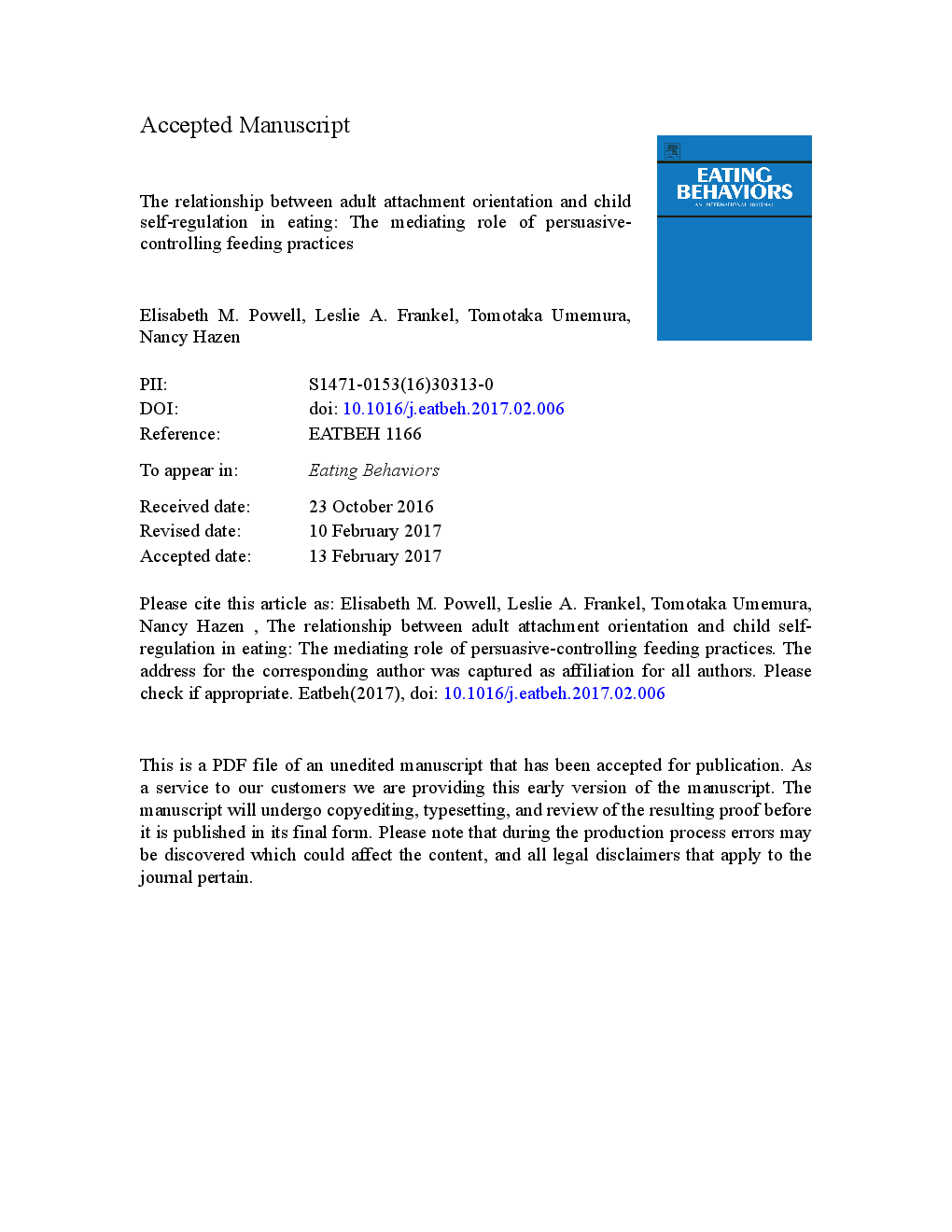ترجمه فارسی عنوان مقاله
رابطه بین جهت گیری دلبستگی بزرگسالان و خودمراقبتی در کودک در خوردن: نقش میانجی از روش های متقاعد کننده کنترل تغذیه
عنوان انگلیسی
The relationship between adult attachment orientation and child self-regulation in eating: The mediating role of persuasive-controlling feeding practices
| کد مقاله | سال انتشار | تعداد صفحات مقاله انگلیسی |
|---|---|---|
| 131679 | 2017 | 33 صفحه PDF |
منبع

Publisher : Elsevier - Science Direct (الزویر - ساینس دایرکت)
Journal : Eating Behaviors, Volume 26, August 2017, Pages 121-128
ترجمه کلمات کلیدی
جهت گیری دلبستگی بزرگسالان. روابط والدین کودک، شیوه های تغذیه، کنترل تغذیه، خوردن غذای کودک، مقررات اشتها
کلمات کلیدی انگلیسی
Adult attachment orientation; Parent child relations; Feeding practices; Controlling feeding; Child eating behavior; Appetite regulation;
ترجمه چکیده
در مطالعه حاضر فرضیه مطرح شده است که جهت گیری دلبستگی بالغ، به ویژه دلبستگی اضطراب، مربوط به توانایی کاهش توانایی فرزندان برای تنظیم میزان مصرف مواد غذایی خود است و این ارتباط با شیوه های تغذیه متقاعد کننده و والدین والدین متمرکز است. دوصد و شصت و پنج مادر و پدران کودک پیش دبستانی پرسشنامه های آنلاین را تهیه کردند که حاوی ابعاد جهت گیری دلبستگی بزرگسالان، اقدامات تغذیه کنترل کننده ی اطمینان والدین و تنظیم خود غذای کودک بود. مدل سازی معادلات ساختاری نشان داد که رابطه معناداری بین دلبستگی اضطراب والدین و توانایی خودتنظیم کودک وجود دارد که به طور کامل توسط والدین تغذیه کنترل کننده متقاعد کننده والدین متمرکز شده است. همچنین به عنوان پیش بینی شده، دلبستگی اجتناب ناپذیر والدین به نوعی وابسته به کنترل متقاعد کننده تغذیه و خوردن غذای کودک است. یافته ها نشان می دهد که والدین با جهت گیری دلبستگی مضطرب ممکن است بیشتر از سایر والدین سعی در استفاده از تکنیک های متقاعد کننده برای کنترل مصرف غذا کودکان خود داشته باشند که ممکن است توانایی کودکان در تنظیم مصرف مواد غذایی خود را افزایش دهد و خطر چاقی آنها را افزایش دهد. پیامدهای مداخله مورد بحث قرار گرفته است.

